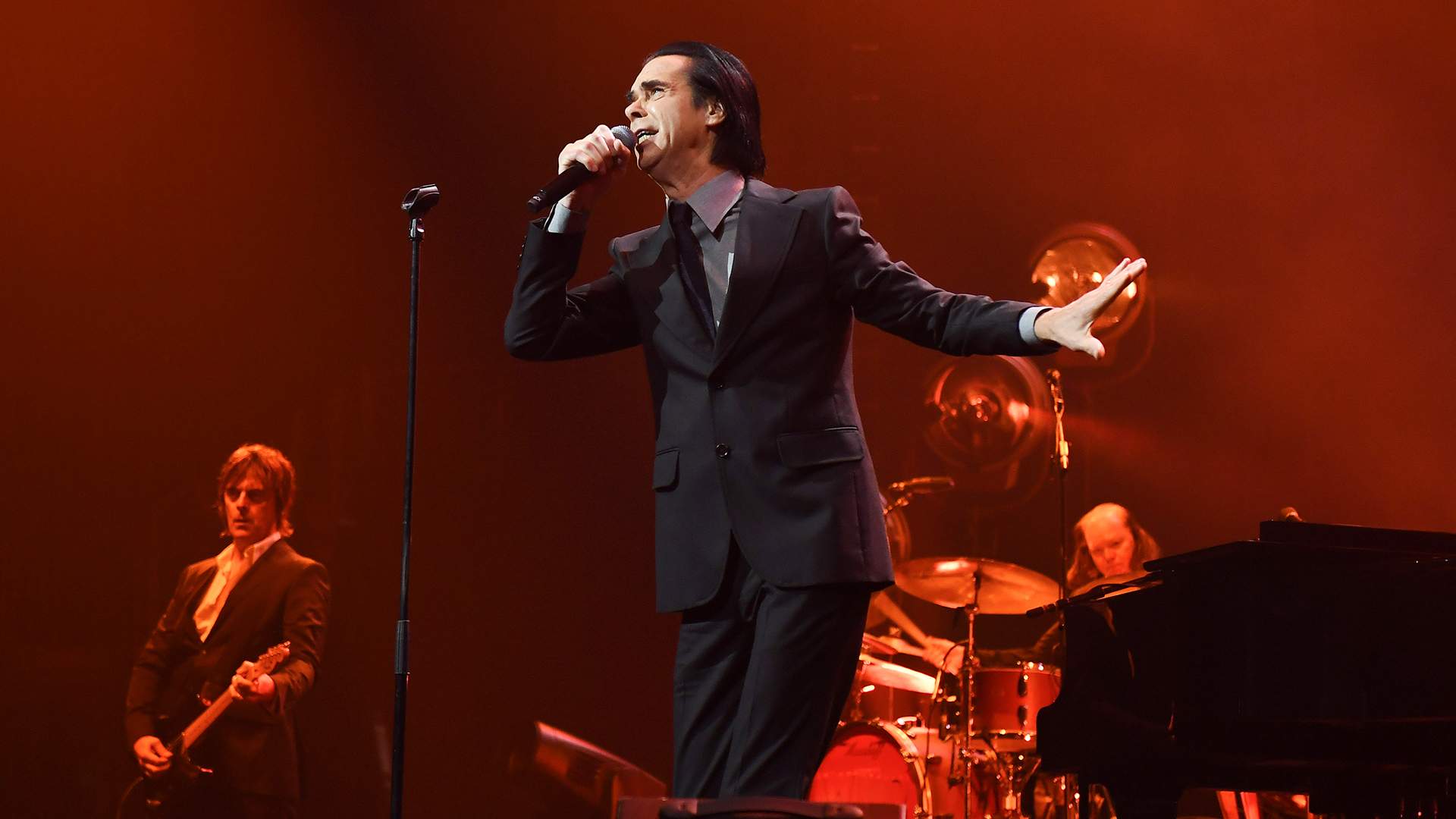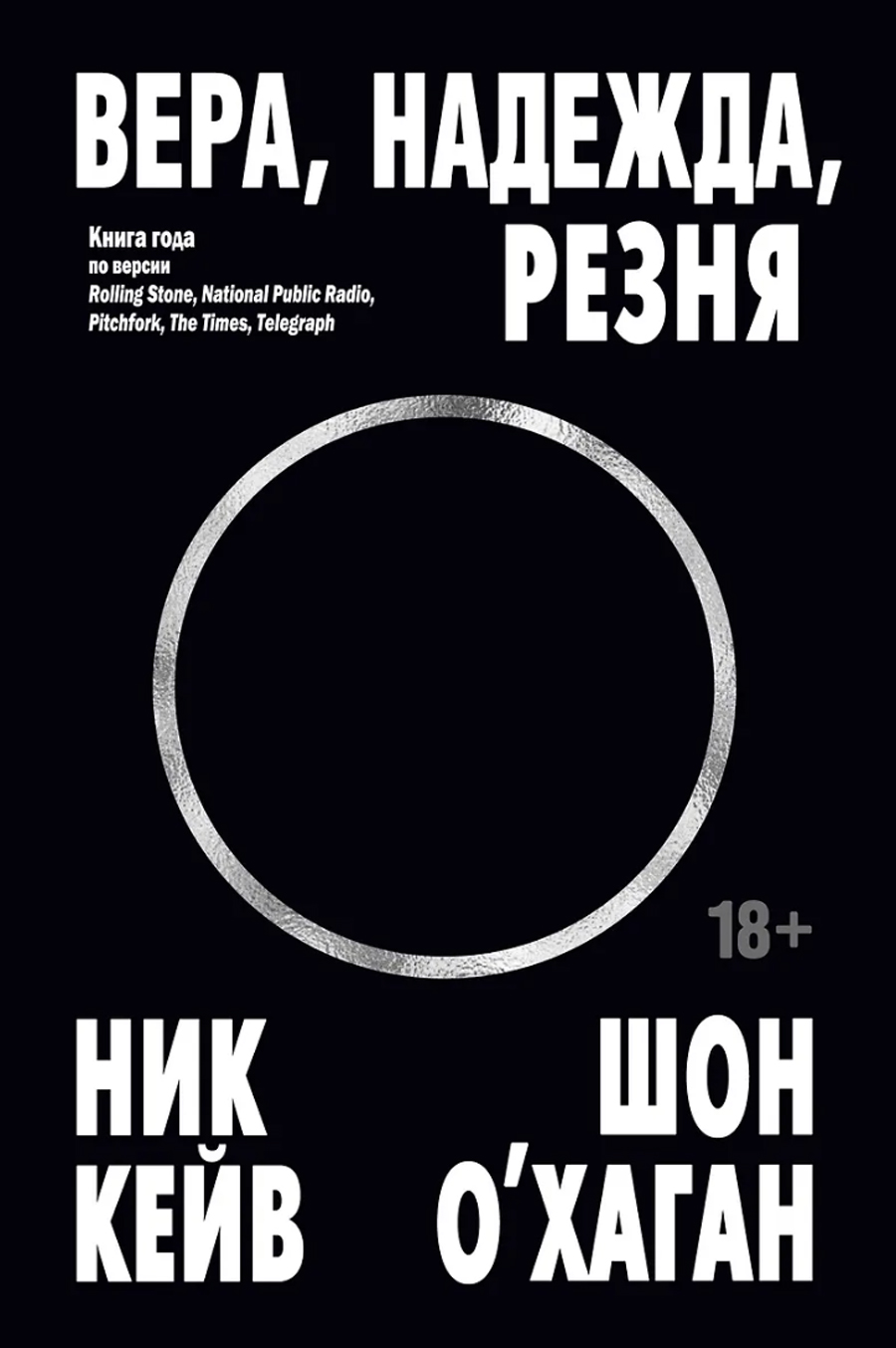- Статьи
- Culture
- A word has been said about the poor artist: the best book about Nick Cave has been published in Russia
A word has been said about the poor artist: the best book about Nick Cave has been published in Russia

The biggest event in the literature about music in 2022, the bestseller "Vera, Nadezhda, Massacre" has been translated into Russian and released by KoLibri Publishing house. This is a unique opportunity to "eavesdrop" on Nick Cave's forty hours of conversations with journalist Sean O'Hagan at the height of the pandemic. Reading this book is sometimes scary, sometimes funny, but always incredibly interesting. Izvestia explains why.
What is Nick Cave doing now?
Involuntarily, Nick Cave turned out to be a modern rock Icon, and the bitterness of his lyrical heroes became flesh. In 2015, the musician's son Arthur tragically died, during the pandemic Cave lost his mother — and could not say goodbye to her. And when the book "Faith, Hope, Massacre" was being prepared for publication, Cave's other son, Jethro Lazenby, committed suicide. And from the first pages of this weighty work (about 300 pages in English, more than 400 in Russian), it becomes clear that Cave needs to speak out.
Deprived of the opportunity to tour, moving from home to the studio and back, Cave surrounded himself with social activities from all sides. He answers hundreds of questions on his website, The Rad Hand Files (you can ask about anything, even now). He writes children's fairy tales, sells his sculptures, and even designs clothes. I didn't leave myself a single free minute. And yet this is clearly not enough. He doesn't need an interview, but a confession, and the critic Sean O'Hagan, whom Cave has known for more than 30 years, accepts it. He accepts it patiently, delicately, without insisting on his own, sacrificing the harmony of the narrative, but at the same time trying to get out of the Cave everything that prevents him from living.

It's hard to talk to Cave, it's immediately noticeable. He is a neurotic and vulnerable egocentric and narcissist, his interests are focused on himself, on art, on writing and recording songs. And, of course, on spirituality, the main theme of his compositions, where atheism turns into prayer and returns to a state of anger and chaos, sometimes within the framework of one track, not to mention albums.
"Outright rejection of the divine is harmful to writing," Cave reflects in the book. — Atheism hinders musical creativity. This puts you at a disadvantage because your options are limited, and besides, the very sacred essence of music is being denied. In my experience, it's just blinkered."
What were Nick Cave's concerts like in Russia?
Nick Cave has been known and loved in Russia for a long time, he came here many times with concerts, and, of course, his main stage image is a raging pastor in a three-piece suit and with a cigar in his hand. Judging by the book, Cave is quite consistent with his lyrical hero, and an essential part of the text is his reflections on the Old Testament, his relationship with Christianity and other religions. And — a discussion of the lyrics Cave wrote about it over the years.
Although the book most often discusses the most recent albums of Ghosteen and Carnage at that time (the very "Massacre" that is effectively included in the title), Sean O'Hagan loves Cave's early work too much not to periodically throw in quotes from classic hits of the 1990s. Cave most often reluctantly, but still comments on them, gets involved in an argument, and then another layer of the book arises.
Drug addiction. We suddenly discover that no matter what old song O'Hagan remembers, it was most likely written in rehab, according to Cave's recollections. And immediately follows vivid descriptions of hospitals, companions in misfortune, and the passions that overwhelmed Cave in those moments. And suddenly the albums Boatman's Call, Let Love In, Tender Prey are overgrown with such details that we now look at songs that we knew by heart and that have long been a part of us in a completely different way. And if they weren't composed in rehabs, then they were composed between them. And now there are cops who caught Cave with drugs, there are muses for whom he tried to quit, and then he broke down again. Izvestia reminds us that drug use is life—threatening, and trafficking in narcotic substances is punishable by law.
Very touching memories of her mother, for example, how she came to visit her young son in London, but he did not dare to show her where he lived at that moment, because it was a squat with broken windows, broken furniture and a bunch of beggarly bohemian drug addicts. Cave gloomily remarks that most of his youth friends are already dead, and we understand the reason. The musician himself got rid of drug addiction many years ago and has not been using anything for a long time. On his website, The Rad Hand Files, he is most willing to respond to those who have not yet solved this problem.
Of course, to read this book, you need to know at least Cave's greatest hits: O'Hagan is too busy talking to explain in detail which lines and why he has always been interested. And that's why the reader needs this music to be native, to sound in their ears when they read. However, one foreign critic wrote that he "purposely did not Google who Cave was at all until the end of the book, and still had a lot of fun." And then I went to listen to music.
However, as already mentioned, Cave has no problems with fame in Russia, he is completely ours, among rock fans there are hardly those who have managed to miss all his concerts, and still they probably have a bunch of his favorite hits. But when O'Hagan and Cave start discussing other performers, it's likely that even music lovers will have to work harder and look for what they're talking about. Because Cave's tastes are specific: he practically doesn't listen to new music, but in the old he is mostly interested in blues and country, and you need to have O'Hagan's erudition to immediately catch Cave's quotes and not get confused among the namedrops.
But since the core and reason of the book is a confession, the further Cave goes, the more he talks about the family. About his dead son, about his mother, about his wife, about his close musician friends, with whom he spent years in studios and on tour at various times. Cave wouldn't be Cave if he hadn't snapped at some remark by O'Hagan that those who were Cave's partners should not complain, because he gave them much more than they gave him. And then some people make him look like a vampire, they say, he drains all the juices out of people and then throws the victims in the trash. And then we smile knowingly. Who can blame old Cave, who will always be forgiven for his genius more than others?
Moreover, the image of Job rises before our eyes more and more vividly. At first, it is confusing that the book is devoid of illustrations: How could we miss such an opportunity when we have such a bright charismatic man in front of us? But then you understand. This is to make the imagination work more intensively. So that Cave's every thought turns into the same image as in his songs. In which, as he himself admits, bitterness, anger and fear used to be relatively abstract, but now age and experience have made it "more authentic." It's worth considering how much precise and terrible irony there is in these words.
The book "Faith, Hope, Massacre" is a gift to all of us. To all those who miss Nick Cave's crazy concerts, that unpredictable energy, that sometimes unbearable, but never vulgar lyricism. According to his stories, according to the piano, according to the gloomy looming over the concert hall, which is replaced by violent hysteria. Meanwhile, Cave himself is agonizingly worried that, due to aging, he will soon be unable to perform his favorite gesture: fall to his knees in front of the audience so that the bones crackle. Because not only do we love him, but he loves us too.
Переведено сервисом «Яндекс Переводчик»



